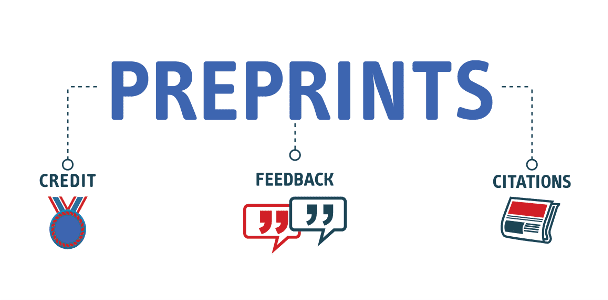
Source: https://www.aje.com/arc/benefits-of-preprints-for-researchers/
A preprint is a version of a research manuscript published before peer review. Normally, these are published electronically and made freely available on large databases or preprint servers. Some of the popular preprint servers include arXiv, PeerJ, The Open Science Framework, OSF Preprints. Preprint servers provide a DOI (Digital Object Identifier) to enable you to link to your work and version control to curate the different versions as you make changes to your manuscript. Publishing a preprint can speed up the process of disseminating your research and avoiding any delays caused by the publication process.
Preprints achieve many of the goals of journal publishing, but within a much shorter time frame. The biggest benefits fall into 3 areas: credit, feedback, and visibility.
Credit – When you post a preprint with your research results, you can firmly stake a claim to the work you’ve done. If there is any subsequent discussion of who found a particular result first, you can point to the preprint as a public, conclusive record of your data. Most preprints are assigned a digital object identifier (DOI), which allows your work to become a permanent part of the scholarly record – one that can be referenced in any dispute over who discovered something first.
Feedback – In the traditional system, a submitted manuscript receives feedback from 2 or 3 peer reviewers before publication. With a preprint, other researchers can discover your work sooner, potentially pointing out critical flaws or errors, suggest new studies or data that strengthen your argument or even recommend a collaboration that could lead to publication in a more prestigious journal.
Visibility – Preprints are not the final form of a research paper for most authors. Thankfully, preprints and infrastructure providers like Crossref link to the final published article whenever possible, meaning that your preprint can serve to bring new readers to your published paper. A study in the Journal of the American Medical Association saw notable increases in citations and Altmetric scores when authors had posted their work first as a preprint.
Normally journal publishers will not accept work that is published or submitted elsewhere. Journal publishers in subjects where preprints are widely used will accept research that has been previously released as a preprint. As preprints emerge as a normal part of the publishing process in new subject areas, questions about whether preprints are regarded as previously published are still being worked through. It would be prudent to check the policies of publishers who may be the ultimate publishers of your research if you choose to publish your research as a preprint.
Journal publishers encourage the publication of preprints after a paper has been accepted. This is the Green Route to Open Access publication. It is important that the publisher’s policies on preprints after publication / submission are checked on the SherpaRoMEO database.
In recent developments (2017) research funders The Welcome Trust, the Medical Research Council and others have accepted the inclusion of references to preprints in grant applications as evidence of current research activity.
However, there are some crucial points to consider, before you submit your preprint to a server. The preprint guidelines below from Wiley provide some useful points to consider:
- Posting of a preprint may violate the copyright agreement or understanding held with a publisher. When you submit an article to a journal you are doing so with the implicit understanding that an accepted article will be published and the copyright for that article then transferred to the publisher. It is ethically wrong to post a preprint that has benefitted from the resources of a publishing house (revision after peer review, copy editing, publication on Wiley Online Library, etc.); especially where the revised, accepted article, and final published versions of a paper are concerned.
- A preprint service provider may ask authors to sign an agreement that prevents publication of the work in a journal later. On ChemRxiv, authors may control the usage rights for their posted preprint with one of three CC BY attribution licenses. When posting on a preprint server, such as ChemRxiv, we recommend that authors retain the rights to their work through use of a non-exclusive license to distribute interim research products (e.g., with a CC-BY-NC-ND or no reuse license), so that their publication options are not limited in any way later on. If an author posts a preprint under one of these licenses, the author can grant the publisher rights to use in a commercial and/or derivative manner because the author has retained those rights.
- Failure to declare the preprint(s) associated with submission to a journal may be non-compliant with the journal′s Notice to Authors and could be grounds for rejection of a submitted manuscript.
- Publicity of preprints through media coverage (e.g., press releases) is not advised when publication of the work in a journal is envisaged. Authors run the risk of attracting media attention to the work before it has undergone a thorough peer-review process.
As mentioned above, different publishers have different policies regarding preprints so do check each publisher policy on the SherpaRoMEO database for accurate information.
For more information on preprints, please visit the links below:
https://www.aje.com/arc/benefits-of-preprints-for-researchers/
https://ambulance.libguides.com/c.php?g=661297&p=4671549
https://onlinelibrary.wiley.com/page/journal/15213773/homepage/preprints





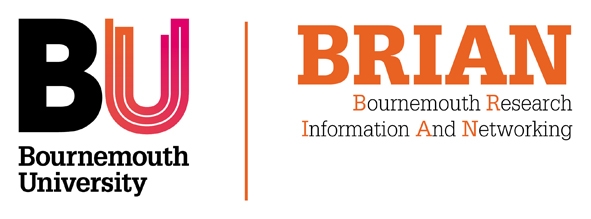





 EMA held its 6th triennial education conference in Malmo, Sweden from the 28-29 November 2019. Dr. Luisa Cescutti-Butler and Professor Sue Way had three abstracts accepted, two of which highlighted units of learning in our midwifery undergraduate programme (Evaluating the student experience of introducing newborn infant physical theory into a pre-registration midwifery programme in the UK and An evaluation of the student experience of peer facilitated learning) and a further one which was focused on a national collaborative project on grading practice (Developing a set of key principles to achieve consistency in assessing pre-registration midwifery competency in practice in the UK). The opening keynote speaker at the EMA Conference was Fran McConville – Midwifery Expert at WHO. Fran presented on ‘Strengthening Quality Midwifery Education for Universal Health Coverage 2030’. Our takeaway message from her presentation was the following important statement: “When midwives are educated to international standards, and midwifery includes the provision of family planning……more than 80% of all maternal deaths, stillbirths and neonatal deaths could be averted”.
EMA held its 6th triennial education conference in Malmo, Sweden from the 28-29 November 2019. Dr. Luisa Cescutti-Butler and Professor Sue Way had three abstracts accepted, two of which highlighted units of learning in our midwifery undergraduate programme (Evaluating the student experience of introducing newborn infant physical theory into a pre-registration midwifery programme in the UK and An evaluation of the student experience of peer facilitated learning) and a further one which was focused on a national collaborative project on grading practice (Developing a set of key principles to achieve consistency in assessing pre-registration midwifery competency in practice in the UK). The opening keynote speaker at the EMA Conference was Fran McConville – Midwifery Expert at WHO. Fran presented on ‘Strengthening Quality Midwifery Education for Universal Health Coverage 2030’. Our takeaway message from her presentation was the following important statement: “When midwives are educated to international standards, and midwifery includes the provision of family planning……more than 80% of all maternal deaths, stillbirths and neonatal deaths could be averted”.
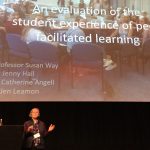




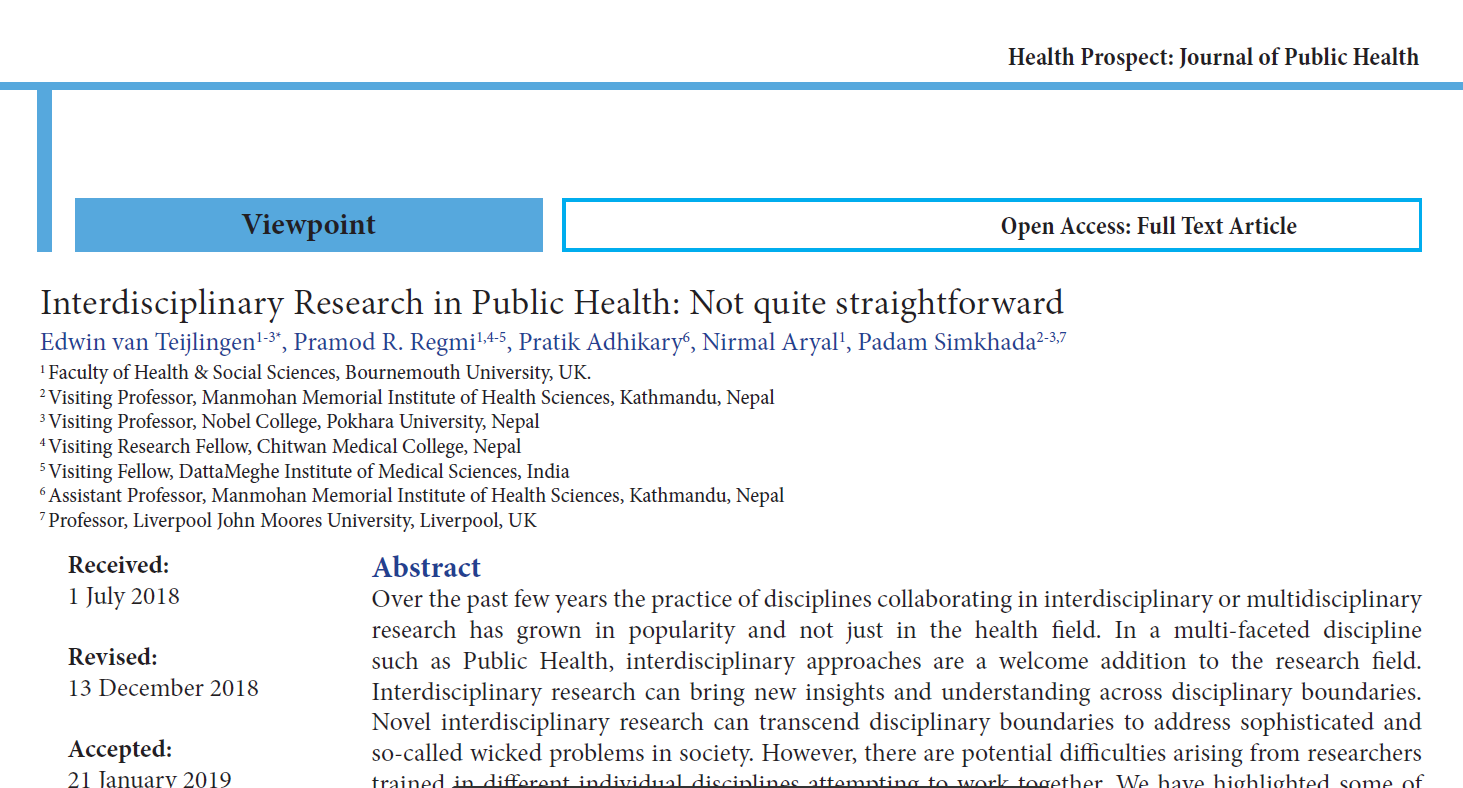

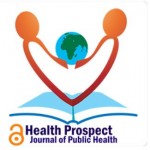














 Nursing Research REF Impact in Nepal
Nursing Research REF Impact in Nepal Fourth INRC Symposium: From Clinical Applications to Neuro-Inspired Computation
Fourth INRC Symposium: From Clinical Applications to Neuro-Inspired Computation ESRC Festival of Social Science 2025 – Reflecting back and looking ahead to 2026
ESRC Festival of Social Science 2025 – Reflecting back and looking ahead to 2026 3C Event: Research Culture, Community & Cookies – Tuesday 13 January 10-11am
3C Event: Research Culture, Community & Cookies – Tuesday 13 January 10-11am Dr. Chloe Casey on Sky News
Dr. Chloe Casey on Sky News ECR Funding Open Call: Research Culture & Community Grant – Application Deadline Friday 12 December
ECR Funding Open Call: Research Culture & Community Grant – Application Deadline Friday 12 December MSCA Postdoctoral Fellowships 2025 Call
MSCA Postdoctoral Fellowships 2025 Call ERC Advanced Grant 2025 Webinar
ERC Advanced Grant 2025 Webinar Horizon Europe Work Programme 2025 Published
Horizon Europe Work Programme 2025 Published Update on UKRO services
Update on UKRO services European research project exploring use of ‘virtual twins’ to better manage metabolic associated fatty liver disease
European research project exploring use of ‘virtual twins’ to better manage metabolic associated fatty liver disease